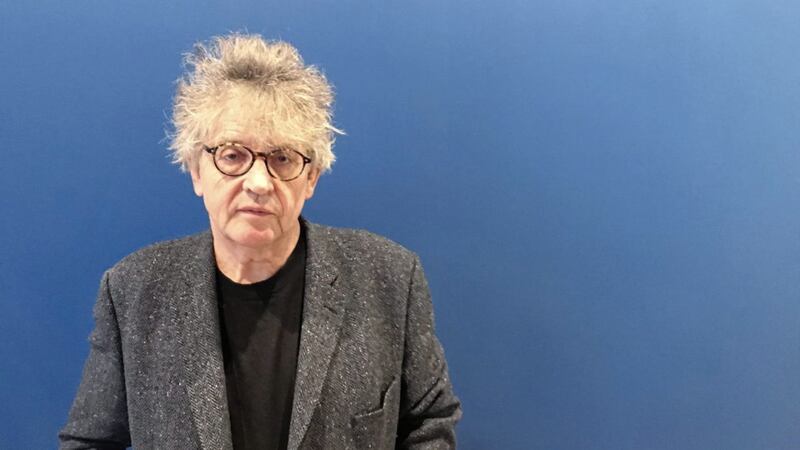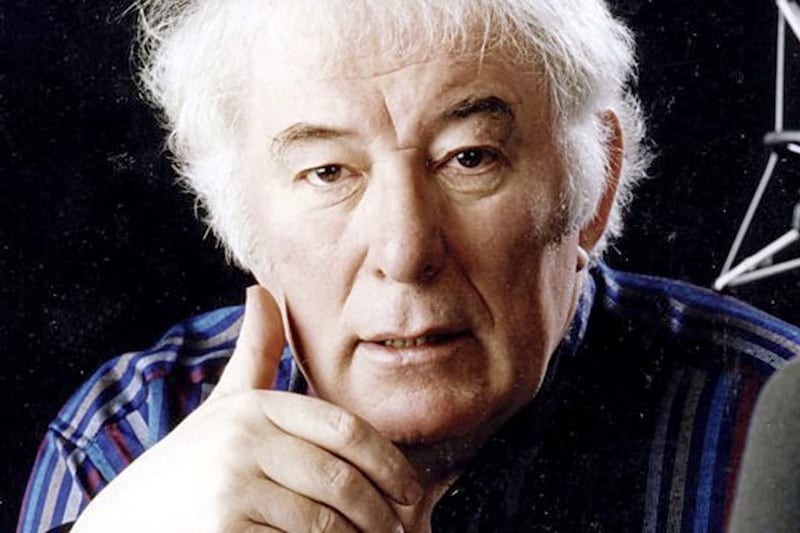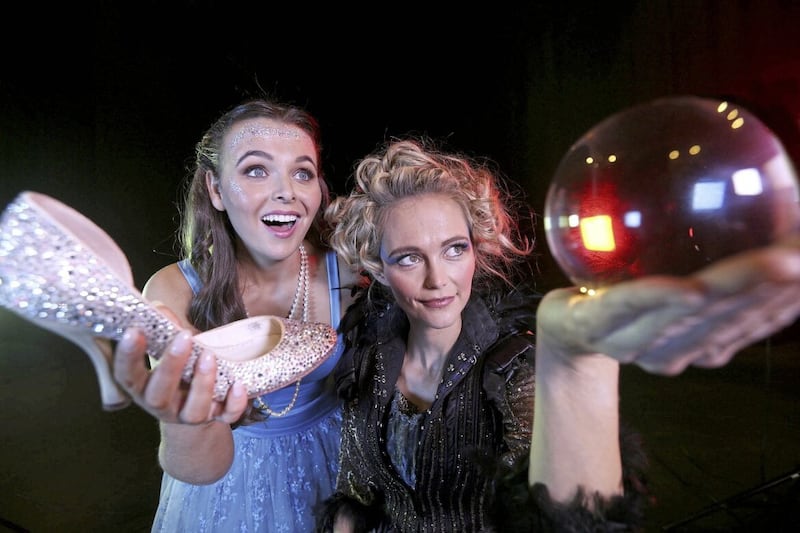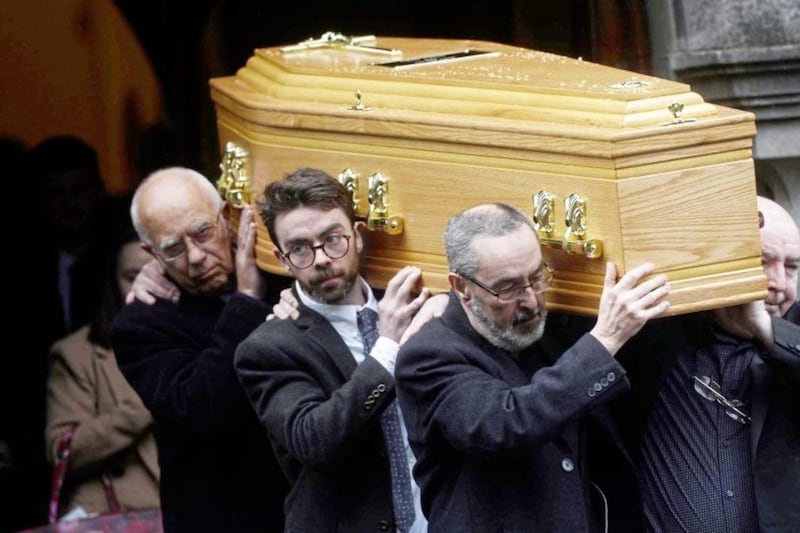PAUL Muldoon, one of the world's greatest poets who hails from 'the Moy', fondly remembers his early poetry experiences and winning a prize at the Feis in Dungannon.
The author of 13 major collections of poetry, Paul will have a new book out later this year. He has been described as one of the great poets of the past century, who can be everything in his poems – word-playful, lyrical, hilarious, melancholy. And angry.
Paul will be appearing at the 33rd Fiddler's Green International Festival in Rostrevor, Co Down today at An Cuan on Shore Road. He will host a poetry workshop at 10am followed by a poetry reading at 3pm this afternoon.
During a phone interview with the Irish News from his upstate New York home, Paul recalled his roots in poetry and the beautiful apple orchards of the county Armagh.
Born in 1951, Paul said that he began writing at about 11 or 12, but started in earnest when he was 15 and a pupil at St Patrick's in Armagh. I asked about his early literary influences in the Moy, on the borders of counties Tyrone and Armagh, and when he started writing poetry
"The first poem was about a school trip to Rome in 66 and was published in the school magazine," said the Co Armagh man, who later attended Queen's University Belfast.
"Prior to that, in terms of influences, at seven or eight I took part in the Feis in Dungannon and I read the Lake Isle of Innisfree by Yeats. Someone reminded me that my party trick then was going around reciting Hiawatha [Longfellow] by the shore of Gitche Gumee.
"Certainly Longfellow was an influence. Other great influences were John Dunne and TS Eliot. I read everything about Eliot and was encouraged in my reading and writing by my teachers.
"The book that fixed it for me was the Faber of Modern verse which included UK and US poetry. That is what I was into when I was 16 or 17, these poems from the 20th century.''
After his time at Queen's, Paul then had a job in radio with the BBC, before leaving 13 years later for a post in the United States.
"I enjoyed my time at the BBC then," he told me.
"However, my father died at that time and my attachment was quite not the same. I met a new woman, an American, who became my wife. A part-time job came up in America and turned into a full-time job.''
When asked about being a poet in the early days of the Troubles, Paul replied: "As you know the Troubles affected all of us. There was no-one in Northern Ireland at that time who did not know someone who was involved in some way, who died, who was injured. It was a very personal experience for all of us.
"Of course, I lived in Belfast through the worst of it. I went there in 69 and left in 86. It was a time in which we were all... 'beset' is the word that comes to mind.''
In asking about how difficult it was to write poems in the times of the Troubles, I referred to some of the poetry by Heaney and Longley, and if perhaps some poets were hesitant to pen words about some aspects of the conflict.
He commented: "Of course we all as citizens, people who lived there, were responding in some way to what was happening on the streets. If you examine the poems there is a lot which deals with the matters of the Troubles. The truth is that there was plenty about.
"One of the difficulties of course, in a strange way, was that you are dammed if you do, or dammed if you don't. Some accused me of putting my head in the sand, or by others of exploiting the troubles of taking advantage of people's suffering or offering up images too gory. It is a kind of 'lose lose' situation.
"We are all touched by what goes on in our lives.''
Muldoon's poetry does not take political party positions, as he explained:
"One thing I know about Northern Ireland is how complex a situation it is. So I have always been inclined to try and reflect some of that complexity and not be involved in party politics. It is complex. A complex political situation.''
I asked Paul if, for example, poetry can be used in healing. He replied:
"Healing... I am sure maybe that may be an element. I am less interested in poetry as healing – not that I am not interested in healing. I am more interested in poetry in keeping us on our toes.
"It encourages us to talk straight. We usually can think of poetry sometimes as being oblique, but on balance it encourages straight talking. That is where we need a little help in poetry."
Since his move to the US in 1987, Paul has held various university teaching posts, including Director of Creative Writing at Princeton University, where he has taught for the past 32 years, and Professor of Poetry at Oxford University from 1999 to 2004.
I wondered if the 'American dream' had lived up to his expectations.
"The American dream? I don't know if I ever went looking for it. America has its problems, everywhere has its problems. We have a lot of issues facing all of us in this very small planet.
"We have to start thinking in global terms rather than in terms of individual nations or divisions of nations."
With his next poetry collection due out in the Autumn, I was curious if there might be threads about the Moy and America.
"There are poems in it about all kinds of subject matter," Paul told me.
"There are poems about the US, about Ireland, and this that and the other. I write about what moves me from moment to moment.''
:: Tickets for today's poetry reading cost £10 and are available via the festival office in Bridge Street, Rostrevor, by phone on 078 5688 8590 or can be booked online at Fiddlersgreenfestival.co.uk.








